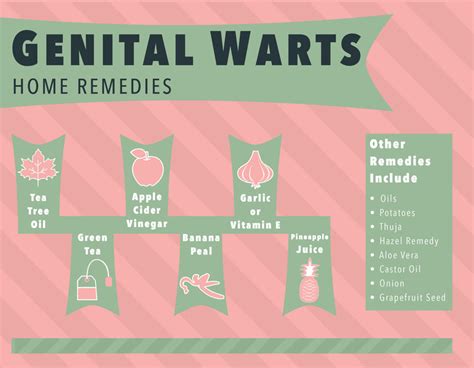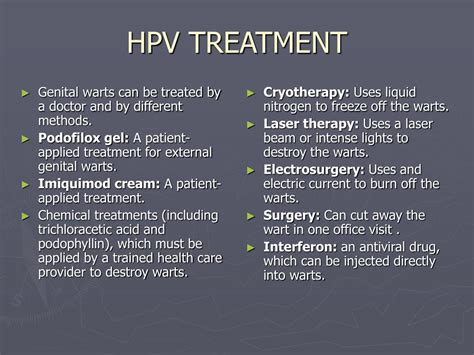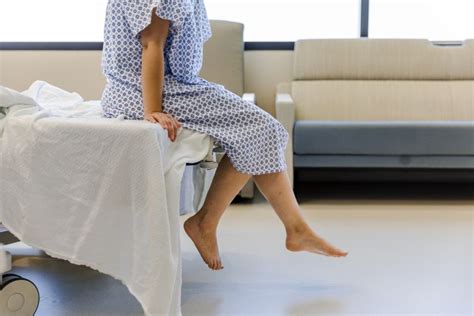Intro
HPV warts can go away naturally, but treatment options are available. Learn about human papillomavirus, genital warts, and natural remedies for removal and prevention.
Human papillomavirus (HPV) warts are a common skin condition that can be frustrating and embarrassing for those who experience them. One of the most frequently asked questions about HPV warts is whether they will go away naturally. The answer to this question is complex, as it depends on various factors, including the type of HPV, the individual's immune system, and the location of the warts. In this article, we will delve into the world of HPV warts, exploring their causes, symptoms, and treatment options, as well as discussing the likelihood of them going away naturally.
HPV warts are caused by the human papillomavirus, which is a highly contagious virus that can be spread through skin-to-skin contact, sexual activity, or by coming into contact with contaminated surfaces. There are over 100 different types of HPV, and some of these types can cause warts to develop on various parts of the body, including the hands, feet, face, and genital area. HPV warts can be painful, itchy, and unsightly, making them a source of distress for many people.
The symptoms of HPV warts can vary depending on the type of HPV and the location of the warts. Common symptoms include small, rough patches of skin, usually on the hands or feet, which can be painful or itchy. Genital warts, on the other hand, can appear as small, flesh-colored bumps or have a cauliflower-like appearance. In some cases, HPV warts can cause bleeding or discomfort during sex. If left untreated, HPV warts can spread to other parts of the body or to other people, making it essential to seek medical attention if symptoms persist.
Understanding HPV Warts

To understand whether HPV warts can go away naturally, it's essential to understand the different types of HPV and how they affect the body. Some types of HPV, such as HPV-2 and HPV-4, are more likely to cause common warts, while others, like HPV-6 and HPV-11, are more commonly associated with genital warts. The immune system plays a crucial role in fighting off HPV, and people with weakened immune systems, such as those with HIV/AIDS or undergoing chemotherapy, are more susceptible to developing HPV warts.
Can HPV Warts Go Away Naturally?

In some cases, HPV warts can go away naturally, without the need for treatment. This is because the immune system can recognize and fight off the virus, causing the warts to disappear. However, this process can take time, and it's not always possible to predict when or if the warts will go away on their own. Studies have shown that up to 30% of HPV warts can resolve spontaneously within a year, while others may persist for several years or even a lifetime.
Factors That Influence the Likelihood of HPV Warts Going Away Naturally
Several factors can influence the likelihood of HPV warts going away naturally, including: * The type of HPV: Some types of HPV are more likely to cause persistent warts, while others may be more easily cleared by the immune system. * The location of the warts: Warts located on the hands or feet may be more likely to go away naturally than those located on the genital area. * The individual's immune system: People with weakened immune systems may be less likely to clear the virus and more likely to experience persistent warts. * The presence of other health conditions: Certain health conditions, such as diabetes or HIV/AIDS, can increase the risk of developing persistent HPV warts.Treatment Options for HPV Warts

While some HPV warts may go away naturally, others may require treatment to resolve. There are several treatment options available, including:
- Topical treatments: Creams, gels, or solutions that can be applied directly to the warts to help clear them.
- Cryotherapy: A procedure that uses liquid nitrogen to freeze the warts, causing them to fall off.
- Laser therapy: A procedure that uses a laser to destroy the warts.
- Surgical removal: A procedure that involves surgically removing the warts.
- Antiviral medications: Medications that can help boost the immune system and fight off the virus.
Prevention of HPV Warts
Preventing HPV warts is always better than treating them. There are several ways to reduce the risk of developing HPV warts, including: * Practicing safe sex: Using condoms or other barrier methods can help reduce the risk of transmitting HPV. * Avoiding skin-to-skin contact: Avoiding skin-to-skin contact with people who have HPV warts can help reduce the risk of transmission. * Getting vaccinated: The HPV vaccine can help protect against certain types of HPV that can cause warts and other health problems. * Keeping the skin clean: Keeping the skin clean and dry can help reduce the risk of developing warts.Living with HPV Warts

Living with HPV warts can be challenging, but there are several things that can be done to manage the condition. This includes:
- Keeping the skin clean and dry
- Avoiding scratching or picking at the warts
- Using topical treatments or other medications as prescribed by a healthcare provider
- Practicing safe sex to reduce the risk of transmission
- Getting regular check-ups with a healthcare provider to monitor the condition and prevent complications.
Coping with the Emotional Impact of HPV Warts
HPV warts can have a significant emotional impact, causing feelings of embarrassment, shame, and anxiety. Coping with the emotional impact of HPV warts requires a comprehensive approach that includes: * Seeking support from friends, family, or a therapist * Practicing self-care and stress-reducing techniques, such as meditation or yoga * Focusing on overall health and wellness, including eating a healthy diet and getting regular exercise * Avoiding negative self-talk and promoting positive self-imageConclusion and Next Steps

In conclusion, HPV warts are a common skin condition that can be frustrating and embarrassing for those who experience them. While some HPV warts may go away naturally, others may require treatment to resolve. Understanding the causes, symptoms, and treatment options for HPV warts is essential for managing the condition and preventing complications. By practicing safe sex, getting vaccinated, and keeping the skin clean and dry, individuals can reduce their risk of developing HPV warts. If you are experiencing symptoms of HPV warts, it's essential to seek medical attention to determine the best course of treatment.
We invite you to share your thoughts and experiences with HPV warts in the comments below. Have you or someone you know been affected by HPV warts? What steps have you taken to manage the condition and prevent complications? Your input can help others who are going through similar experiences.
What are the symptoms of HPV warts?
+The symptoms of HPV warts can vary depending on the type of HPV and the location of the warts. Common symptoms include small, rough patches of skin, usually on the hands or feet, which can be painful or itchy. Genital warts can appear as small, flesh-colored bumps or have a cauliflower-like appearance.
How are HPV warts treated?
+There are several treatment options available for HPV warts, including topical treatments, cryotherapy, laser therapy, surgical removal, and antiviral medications. The best course of treatment will depend on the type and location of the warts, as well as the individual's overall health.
Can HPV warts be prevented?
+Yes, HPV warts can be prevented by practicing safe sex, getting vaccinated, and keeping the skin clean and dry. Avoiding skin-to-skin contact with people who have HPV warts can also help reduce the risk of transmission.
What is the emotional impact of HPV warts?
+HPV warts can have a significant emotional impact, causing feelings of embarrassment, shame, and anxiety. Coping with the emotional impact of HPV warts requires a comprehensive approach that includes seeking support, practicing self-care, and focusing on overall health and wellness.
How can I manage HPV warts?
+Managing HPV warts requires a comprehensive approach that includes keeping the skin clean and dry, avoiding scratching or picking at the warts, using topical treatments or other medications as prescribed by a healthcare provider, and practicing safe sex to reduce the risk of transmission.
